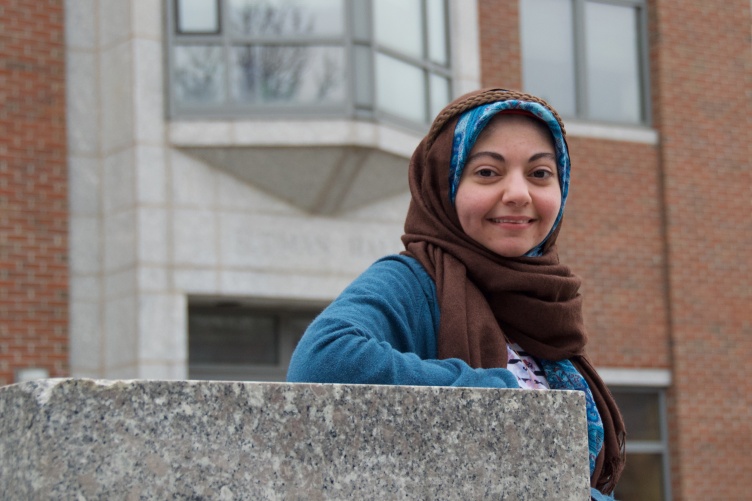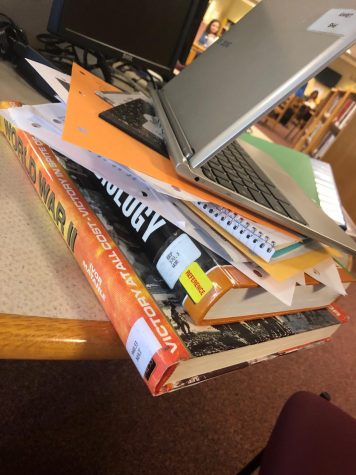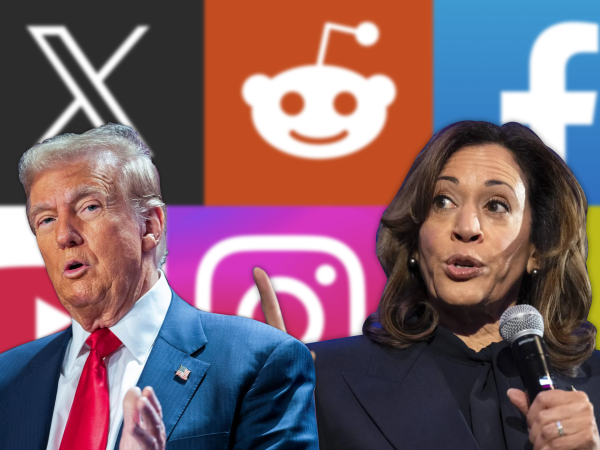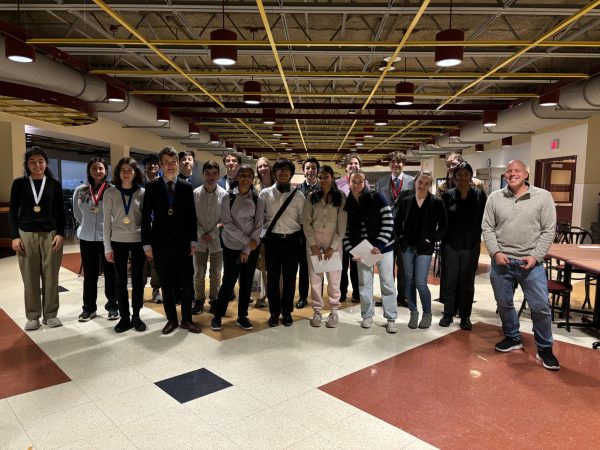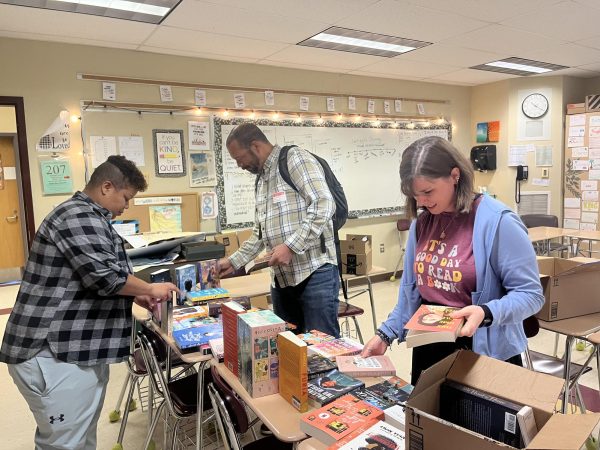Local Muslim Speaks Out Against Islam Misconceptions
Yussra Ebrahim standing outside the campus where she studies.
During the week of 5/22-5/26, Portsmouth High School celebrated Global Awareness Week, and speaker Yussra Ebrahim gave the students some of her time to tell them about her religion, and the misunderstood teachings it has.
“In my opinion, Global Awareness Week is a form of peace activism, and I am so grateful to Helaine Wemple and all of the other lovely teachers at PHS for the opportunity to speak out and share my world with the student body.” Ebrahim graduated from PHS, and comes back every year to spread her message of peace, and she always feels welcomed. Unfortunately, not everyone got to hear her speak, and misconceptions still exist around the religion of Islam.
Even in the peaceful and tolerant state of New Hampshire, a Muslim can still face a small degree of Islamophobia. “I do occasionally get mocked for my faith,” admitted Ebrahim. “…sometimes folks tell me that my beliefs support violence. Such ignorant accusations understandably make me cry.”
Ebrahim described the most consistent case of Islamophobia occurring at the airport. “We get stopped and pulled aside for random searches at airports a statistically suspicious amount of the time relative to travelers who aren’t Muslim.” The reasoning behind this is the label given to people of the Muslim faith, “Terrorism is defined as the practice of spreading fear, often through the use of violence against innocent civilians, to gain power or political influence, but the way the term is frequently used by the mainstream media, terrorism seems to be a word reserved for violence committed by Muslims and brown people specifically.”
Ebrahim discussed how Terrorism is committed by other groups, but is never discussed under such a title. “Many of the actions carried out by the United States government, such as the use of drone strikes to murder innocent civilians in the Middle east, and its surrounding countries by the masses, fit the definition of terrorism exactly. Unfortunately, not only is this genocide not regarded by the general Western public as terrorism, it’s actually considered a legitimate show of force.”
In the media, terrorist attacks are given a great deal of attention. On November 13, 2015, the Paris terrorist attack took the lives of 130 people. However, while #PrayForParis was trending, there was a lack of circulation about the attacks in Beirut and Baghdad by the ISIS terrorist group on November 12 and November 13. In total 69 people were killed and 200 were injured in these attacks. In an opinion piece written in 2015, Iris Zhao wrote,
In 2003, Yussra Ebrahim and her family visited her family members in Iraq, just before the first bombs of war were dropped. When they got home from saying their goodbyes, they found a note. The FBI had broken into their home and confiscated their technological devices for investigation.
“They were legally allowed to violate our privacy so horrifically thanks to the Bush Administration’s Patriot Act,” Ebrahim explained. “…the actions of the FBI made my childhood rife with paranoia. We no longer had the sense of security, privacy, and right to free speech that one might expect of a Western country.”
Not only was some of her family killed in Iraq during this turbulent time period, but her friends in the United States were affected. Her father’s friend Dr. Rafil ran a charity that sent money to the starving people of Iraq. This unfortunately led to his arrest. He is serving a 22 year sentence for violating the trade sanctions that the United States put against Iraq. “It was the goal of the United States government to starve the Iraqi population so as to turn them against the Iraqi government.” says Ebrahim.
Since 2003 when the United States invaded Iraq, the country has been in turmoil. Iraq is controlled by ISIS and both Iraq and Syria are affected by terrorist attacks. “It’s a messy struggle for power, and the only matter that these horrible political groups can agree on is that they don’t care about the value of a human life. My homeland has become a cesspool of violence, and all we can do is pray for the innocent, speak out against violence, and donate to the refugee camps. I would love to see Iraq again someday, restored as the peaceful oasis I left years ago,” says Ebrahim.
The mistake made regarding Islam, is when the word religion gets used interchangeably with culture. “The violent and sexist practices that are perpetrated by corrupt groups and ignorant people in the name of Islam are actually contradictory to the teachings of Islam. It is therefore very important to separate the long-deteriorating, tension-riddled politics of the Middle East, and the sadly insulting cultural practices of some of the folks of various ethnic groups who happen to be Muslim, from the beautiful, peaceful, empowering religion of Islam.” Ebrahim stressed cultural awareness. “The more we seek to understand each other, the less we fear each other. The less we fear each other, the less we find acceptable the use of violence against each other.”


